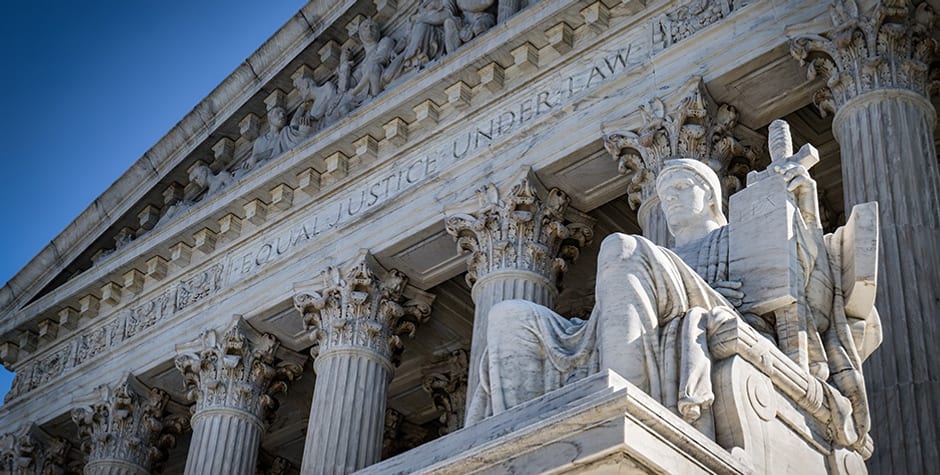ACLJ Files Supreme Court Brief Defending Election Integrity in Pennsylvania
Listen tothis article
Only a day after the Supreme Court ruled in favor of Virginia’s attempt to secure its voter rolls in a case where we filed an amicus brief supporting the state, we are filing another Supreme Court amicus brief in defense of election integrity. This morning we filed an amicus brief urging the Court to protect election integrity in Pennsylvania.
Pennsylvania law includes a provision that if someone submits a mail-in ballot and then attempts to also vote in person, the person’s second in-person provisional ballot should not be counted. This is a simple law that reflects fundamental concerns about election integrity. The law is one person, one vote, and Pennsylvania has ensured that basic principle with measures like this. But the Pennsylvania Supreme Court ignored this law and required an election board that had followed the law to count provisional ballots submitted by voters who had also submitted mail-in ballots, but their mail-in ballots had been disqualified for some reason.
Our brief explained that these last-minute changes to election law without authority threaten the sovereignty of the state legislature. “The Constitution vests the primary authority to set election regulations in state legislatures, not the courts; that authority has been threatened by the Pennsylvania Supreme Court’s ruling, in the eleventh hour before the election, that sets aside the plain text of Pennsylvania’s election code.”
Our brief focuses on two main points. First, it invokes the “Purcell principle,” a legal doctrine warning against last-minute, judicially created changes to election procedures. This principle emphasizes that judicial interventions close to an election can create confusion and undermine electoral integrity. We emphasized that the Pennsylvania Supreme Court’s ruling comes dangerously close to the 2024 national election, potentially destabilizing the entire electoral process. Whether by a federal or state court, last-minute changes to election procedures threaten election integrity and the legislature’s responsibility to govern election procedures.
Second, drawing from recent Supreme Court precedents like Moore v. Harper, the brief strongly asserts that state legislatures – not courts – hold primary authority in setting election regulations. The Elections Clause of the U.S. Constitution specifically vests this power in state legislatures, not judicial bodies. The brief highlights a clear statutory mandate: Pennsylvania law (25 P.S. § 3050(a.4)(5)(ii)(F)) explicitly states that “[a] provisional ballot shall not be counted” if the voter has already submitted a mail-in ballot. The Pennsylvania Supreme Court’s ruling directly contradicts this unambiguous legislative directive.
Our brief explained why this is unconstitutional:
State legislatures possess the authority to legislate how federal elections will proceed. Neither state nor federal courts have the authority to ignore those parameters to set up their own procedures. When a state court supplants the state legislature’s role, it has taken to itself authority that the Constitution has explicitly placed elsewhere. The Constitution reserves to the state legislatures the plenary authority to set election laws and state supreme courts lack authority to supersede those careful legislative policy judgments. The Pennsylvania Supreme Court’s ruling effectively nullifies the Pennsylvania General Assembly’s unambiguous command that provisional ballots must not be counted if the voter has already voted by mail. The Elections Clause denies the lower court that authority.
With Pennsylvania holding 19 electoral votes, the stakes are significant. The Pennsylvania Supreme Court’s ruling could fundamentally alter the national election, potentially undermining the carefully constructed election procedures established by the state legislature. The brief ultimately asks the Supreme Court to issue a stay – effectively pausing the Pennsylvania Supreme Court’s ruling – to prevent a dangerous judicial reinterpretation of election law.
This case represents a critical intersection of state legislative power, judicial interpretation, and electoral integrity. We prepared and filed our amicus brief as quickly as possible, as it is urgent for the Supreme Court to curtail courts’ attempts to rewrite statutes at the last minute. We need your support as we fight to maintain election integrity.
